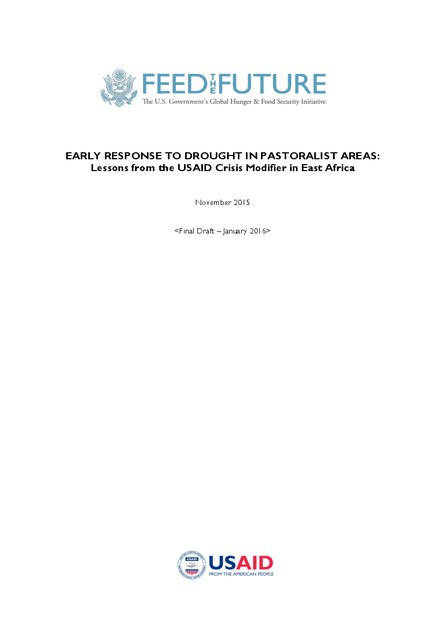
The term “Crisis Modifier” is now used by various aid donors and programs in the Horn of Africa and more widely to encompass a range of mechanisms and relationships that aim to strengthen humanitarian programming within longer-term resilience programs. In pastoralist areas, Crisis Modifiers have a particular role in supporting early responses to drought. In USAID/OFDA, the concept of the Crisis Modifier seemed to evolve more than 15 years ago during the Ethiopia-Eritrea conflict and involved the re-allocation of development funds towards emergency programming.
However, the version of the Crisis Modifier which has been used by USAID/OFDA in pastoralist areas of the region since around 2009 takes a different form and involves:
• an agreement between OFDA in Washington DC and USAID missions whereby OFDA will fund humanitarian activities by a specific USAID resilience project, up to a funding cap of US$500,000 per event, and up to a total amount of US$1 million per year;
• a relatively rapid approval process based on a Crisis Modifier concept note submitted by the implementer of the USAID resilience project – most commonly an international NGO – followed by approvals by OFDA in-country and centrally according to pre-agreed timeframes;
• an understanding that Crisis Modifiers are intended for specific and rapid early responses, and that additional and more standard OFDA proposals, and more substantial funding, may be needed e.g. if a drought becomes protracted.
